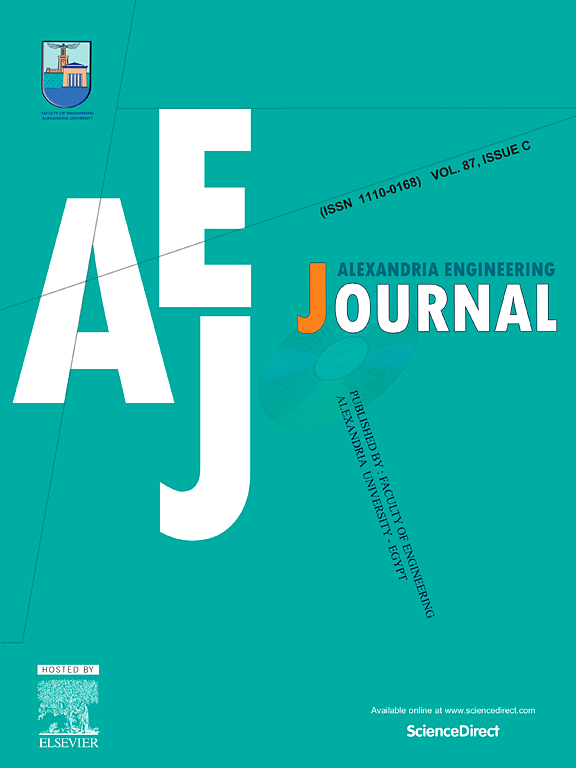Harnessing deep learning to analyze climate change impacts on crop production
IF 6.2
2区 工程技术
Q1 ENGINEERING, MULTIDISCIPLINARY
引用次数: 0
Abstract
Agricultural practices in Africa uplift the economy and sustain livelihoods. However, in recent years numerous issues like climate change, reduced productivity, narrowing resources, and increased prevalence have emerged. In order to combat these obstacles, we devised a plan that integrates IoT, AI ML, and geospatial technology. By analyzing 45 industrial reports and peer-reviewed journals we found out that the use of advanced technology makes resource optimization, irrigation management, and disease detection significantly easier. Our findings reveal some astonishing facts like the efficiency of CNN neural networks in terms of disease detection which stood at an impressive 92 %, then there are neural networks that achieve an accuracy of 88.9 % in predicting the yield of crops. Lastly, RL has managed to attain a water-saving efficiency of an impressive 25.4 %. Despite these advancements, the adoption rate in Africa is still low, this can be attributed to poor infrastructure, lack of funds, and absence of professional knowledge. In order to counter these shortcomings, we suggest political term initiatives, initiatives aimed at enhancing expertise and knowledge, and affordable IOT implementation. In addition to identifying the socio-economic and infrastructural barriers to technology adoption, this essay also offers suggestions that advocate for facilitating sustainable agricultural practices in Africa. So that the identified gaps are bridged, the research aids in enhancing climate change resilience for sustainable growth in the agriculture industry of the continent.
利用深度学习分析气候变化对作物生产的影响
非洲的农业实践促进了经济发展,维持了生计。然而,近年来出现了许多问题,如气候变化、生产力下降、资源减少和患病率上升。为了克服这些障碍,我们设计了一个整合物联网、人工智能机器学习和地理空间技术的计划。通过分析45份工业报告和同行评议期刊,我们发现先进技术的使用大大简化了资源优化、灌溉管理和疾病检测。我们的发现揭示了一些惊人的事实,比如CNN神经网络在疾病检测方面的效率达到了令人印象深刻的92 %,然后有神经网络在预测作物产量方面达到了88.9% %的准确性。最后,RL的节水效率达到了令人印象深刻的25.4% %。尽管取得了这些进步,但非洲的采用率仍然很低,这可归因于基础设施落后、缺乏资金和缺乏专业知识。为了克服这些缺点,我们建议采取政治举措,旨在提高专业知识和知识的举措,以及负担得起的物联网实施。除了确定技术采用的社会经济和基础设施障碍外,本文还提出了倡导促进非洲可持续农业实践的建议。为了弥合已发现的差距,这项研究有助于增强气候变化的适应能力,促进非洲大陆农业的可持续增长。
本文章由计算机程序翻译,如有差异,请以英文原文为准。
求助全文
约1分钟内获得全文
求助全文
来源期刊

alexandria engineering journal
Engineering-General Engineering
CiteScore
11.20
自引率
4.40%
发文量
1015
审稿时长
43 days
期刊介绍:
Alexandria Engineering Journal is an international journal devoted to publishing high quality papers in the field of engineering and applied science. Alexandria Engineering Journal is cited in the Engineering Information Services (EIS) and the Chemical Abstracts (CA). The papers published in Alexandria Engineering Journal are grouped into five sections, according to the following classification:
• Mechanical, Production, Marine and Textile Engineering
• Electrical Engineering, Computer Science and Nuclear Engineering
• Civil and Architecture Engineering
• Chemical Engineering and Applied Sciences
• Environmental Engineering
 求助内容:
求助内容: 应助结果提醒方式:
应助结果提醒方式:


